Working with Communication Health Assistants in Your Practice
Brought to You by the SHBC Private Practice Committee, July 2022
Please note: This Q and A document was created to consolidate information and resources regarding how to successfully supervise Communication Health Assistants in BC; however, it remains the responsibility of the supervising speech language pathologist to ensure they have followed all college guidelines adequately. The College of Health and Care Professionals of BC does not recognize this as an official document and Speech and Hearing BC does not take responsibility for ensuring individual adherence to college requirements.
What is a Communication Health Assistant (CHA)?
What specific activities are CHAs allowed to do? What are they not allowed to do?
A RSLP may delegate certain aspects of practice to CHAs who have adequate education, training, supervision, and who have been determined to be competent in the required skills. Appendix A of SOP-PRAC-04-Communication-Health-Assistants-Delegation-Assignment from CHCPBC has a comprehensive list of which aspects of practice can be delegated to CHAs and which cannot.
What are the requirements for obtaining consent for delegating services to a CHA?
RSLPs are required to obtain informed consent from the client for all services delivered to a client; this consent should be documented (see SOP-PRAC-06-Client-Consent document from CHCPBC). In addition, consent must be obtained for the delegation of services to a CHA (see PRAC-04-Communication-Health-Assistants-Delegation-and-Assignment document from CHCPBC). Please note that, according to the SOP-PRAC-06-Client-Consent document from CHCPBC, CHAs may assist in the consent process but the RSLP is responsible for the consent process and the CHA cannot be the signatory on the consent document.
What is the minimum amount of supervision an SLP must provide for a CHA?
At the very least, all CHAs require ‘general supervision’. The specific amount of supervision required is based on the CHA’s individual level of relevant education and experience in their role. For example, supervision may be constant for a new or training CHA or for a new skill area, close for a CHA whose skills are emerging, or general for a CHA who is competent in the delegated skills. There is no specified minimum number of hours or frequency so long as the CHA is adequately supervised for delegated tasks as per your clinical judgement. See SOP-PRAC-07-Supervision and SOP-PRAC-05-Communication-Health-Assistants-Education-Training-and-Competence from CHCPBC for more information on determining competency and level of supervision required.
What kind of supervision is required (i.e. in person, virtual, coaching etc.)?
As above, this is dependent on the CHA’s level of competency. However, the RSLP must document all delegations and the CHAs acceptance of the delegation. See SOP-PRAC-03-Virtual-Care for more information.
What is the minimum amount of training needed to run an SLP program as a CHA in BC?
There is no specific educational program that must be completed by CHAs in BC; however, there are minimum competencies that they must possess. It is the supervising SLP’s responsibility (i.e. even if they are not the employer) to ensure these minimum competencies are in place. This CPG-09-CHAs-Verifying-Education-Training-Competence training checklist should be completed prior to delegating tasks to a CHA. If you are an employee of a company, the competency of any CHAs to which you delegate tasks remains your responsibility; please discuss necessary competency training for your CHAs with your employer.
What continuing education requirements apply to CHAs and what must the RSLP do to ensure these are met?
RSLPs are responsible for verifying a CHA’s formal training and/or clinical competencies before delegating services and should advise CHAs to maintain copies of their training and continuing education records. According to the CPG-09-CHAs-Verifying-Education-Training-Competence document from CHCPBC formal education is considered current if it was attained within the last 7 years and/or if the CHA has been practising their skills within the previous 3 years. A review of current skills and abilities is warranted if there is no evidence of previous training, current practice, or ongoing continuing education or if there are any competency concerns by either the supervising RSLP or the CHA. If a CHA’s clinical competencies are found to be lacking, RSLPs must create a learning plan that outlines specific continuing education or training requirements (including expected date of completion) in order to address any gaps in clinical competencies for the CHA. It is also the RSLP’s responsibility to create a supervision plan (see SOP-PRAC-07-Supervision) in order to ensure the CHA is appropriately supervised during delegated activities that involve any competency concern areas. Please see the Clinical Practice Guideline called CHAs: Verifying Education, Training, & Competence (Appendix B of CPG-09) for sample learning and supervision plans.
Where can I find more information on successfully working with CHAs?
See Speech-Language & Audiology Canada (SAC)’s document CHA_Guidelines_SLP-Assistant for additional guidelines and suggestions.
